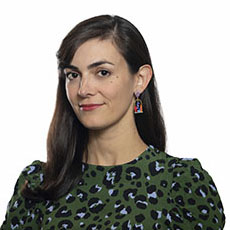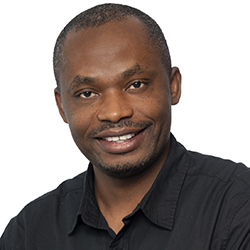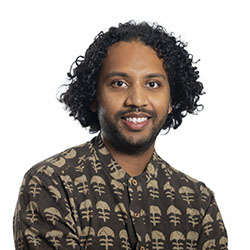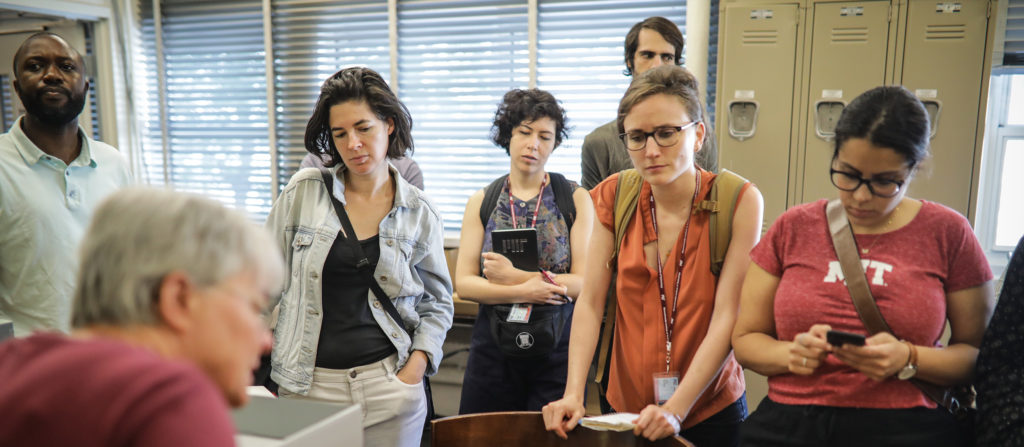Current Fellows
The Knight Science Journalism Program is proud to be hosting five KSJ fellows in Cambridge during the 2023-24 academic year. Along with Boston-based digital publication STAT, the Program is also co-hosting two Sharon Begley Science Reporting Fellows. Learn more about them below.
KSJ Fellows | Sharon Begley Fellow
KSJ Fellows

Lisa Grossman is an award-winning science journalist based in the Boston area. She is a staff reporter at Science News, where she covers astronomy. Her work has taken her from atop the Matanuska Glacier in Alaska, to the guts of the Large Hadron Collider at CERN, to NASA’s Lunar Samples Lab in Houston. Previously, she was the physical sciences news editor at New Scientist. Grossman holds a degree in astronomy from Cornell University and a graduate certificate in science communication from UC Santa Cruz.

Jessica Hamzelou is a multi-award-winning science and health journalist. She is currently a senior reporter at MIT Technology Review, where she covers biomedicine, health, and biotechnology. She previously spent over 12 years at New Scientist magazine in several reporting and editing roles. Her work has also been featured in The Washington Post, Slate, Ideas Illustrated, The Lancet, and other publications. Jessica has an undergraduate degree in biomedical sciences from University College London and a masters in science communication from Imperial College London.

Kai Kupferschmidt is a freelance science journalist based in Berlin, Germany. As a contributing correspondent for Science Magazine he has mostly covered infectious diseases, including the Ebola outbreak in West Africa, the Covid-19 pandemic, and the mpox outbreak. His writing has also appeared in many German outlets, and he has won several awards, including the Journalism Award of the German Aids Foundation. He is co-creator and co-host of the podcast “Pandemia.” Kai has a degree in molecular biomedicine and has written two books, one on infections and one on the color blue: “Blue. In Search of Nature’s Rarest Color.”

Chikezie Omeje is currently an Africa editor at the Organized Crime and Corruption Reporting Project. He previously reported for the International Centre for Investigative Reporting. Before that, he was a news editor at Aso Radio in Nigeria and covered the environment and health. He has won many awards, including the top prize at the African Science Desk Journalism Awards and African Fact-Checking Awards. He holds an MS in data journalism from Columbia University and an MA in journalism with a concentration in science and technology communication from Stellenbosch University.

Justin O’Neill is an audio journalist based in Washington, D.C. He works as a news editor at WAMU, covering the environment, transportation and education beats. Prior to his time working in local news, he reported and produced audio features as senior producer of the Smithsonian’s Sidedoor podcast, a podcast about space for PRX, and a wide variety of science-focused audio stories at National Geographic. He started his career in audio journalism at NPR, where he found his love of radio production as an intern helping to report a story about birds. He grew up mostly around Toronto, and has a master’s degree in journalism from Syracuse University.

Madeline Ostrander is an environmental journalist and the author of “At Home on an Unruly Planet: Finding Refuge on a Changed Earth,” named one of Kirkus Review’s 100 best nonfiction books of 2022. Her work has also appeared in the The Atlantic, The NewYorker.com, The Nation, Sierra Magazine, PBS’s NOVA Next, Slate, High Country News, Audubon, and numerous other outlets. Ostrander has taught narrative journalism, science-writing, essay-writing, and nonfiction at Seattle’s Hugo House. She is the former senior editor of YES! Magazine and holds a master’s degree in environmental studies from the University of Wisconsin–Madison.

Nicky Phillips is a science journalist based in Sydney, Australia. For the past six years, she has been a news editor and the chief of the Asia-Pacific bureau for Nature magazine. Before joining Nature, Nicky worked as a science reporter for the Sydney Morning Herald and as a radio reporter and producer for the Australian Broadcasting Corporation. She has degrees in science and journalism and is a founding member of the Science Journalists Association of Australia.

Dyna Rochmyaningsih is a freelance journalist whose works have appeared in Science Magazine, Nature, BBC Future, Mongabay, The Christian Science Monitor, Undark, Sapiens, Rest of World, and other outlets. From her home in rural Sumatra, she has written stories at the intersection of science and society in Indonesia, the Global South, and the Islamic World. In recent years, she has focused on covering science policy and the suppression of science in Indonesia. She also received support from National Geographic, the International Women’s Media Foundation, and Pulitzer’s Rainforest Journalism Fund, for her reporting on the environmental crisis in Indonesia.

Inayat Singh is a national climate reporter for the Canadian Broadcasting Corporation in Toronto. He covers energy and environmental policy, climate solutions, and natural conservation in Canada. His stories appear on TV, radio, and online, and he has guest hosted CBC’s What On Earth, a network radio show on the climate. He has also taught a data journalism course at Toronto Metropolitan University. Originally from Delhi, India, Singh has a bachelor’s degree in journalism from Carleton University in Ottawa.

Peter Whoriskey is a reporter at The Washington Post whose current work focuses on investigations of economic and financial issues. He has been a staff writer for The Washington Post since 2001 and has covered a wide array of subjects, including child labor in the world’s cocoa harvest, the effects of private equity in healthcare, and two of the most devastating hurricanes to hit the United States, Andrew and Katrina. His work has won a number of awards, including a George Polk for his series on the role of pharmaceutical companies influencing drug research, “Biased Research, Big Profits.”
Sharon Begley Fellow

Deborah Balthazar was previously a freelance science journalist with bylines in Science News, Science News Explores, and Scholastic Classroom Magazines. Before that, she wrote for three years about the local government in her hometown and surrounding towns in New Jersey for TAPinto.net, a hyperlocal daily online newspaper. Balthazar received a B.A. in biology with minors in English and chemistry from Caldwell University and received a master’s degree in science journalism from the Science, Health & Environmental Reporting Program (SHERP) at New York University.


